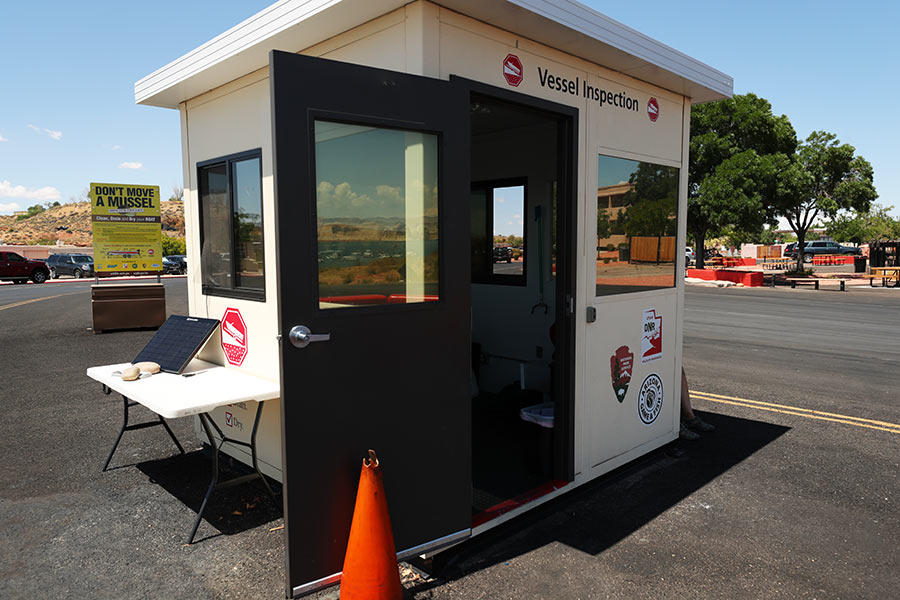19,025 boats inspected for quagga mussels during 4th of July weekend
Salt Lake City — While many celebrated the nation's independence over the Fourth of July weekend, law enforcement officers and technicians for the Utah Division of Wildlife Resources across the state were busy working to keep something else free — boats free of invasive quagga mussels after leaving Lake Powell.
Statewide, Aquatic Invasive Species technicians with the DWR, Utah State Parks, Arizona Game and Fish Department and the National Park Service inspected 19,025 boats and performed 381 decontaminations from Friday to Monday. During the 2020 Fourth of July weekend, 20,886 inspections were performed statewide, and 441 boats were decontaminated.
Of those total numbers, 1,380 of the boat inspections and 118 of the decontaminations took place at stations in the Lake Powell area.
"The new dip tank has been used for roughly half of the decontaminations at Lake Powell and has been invaluable for more quickly and efficiently cleaning the boats with more complex systems," DWR Aquatic Invasive Species Sgt. Micah Evans said. "Boating numbers were lower than this time last year, likely due to the lower water levels at Lake Powell, but it is still very important for every boater who does visit Lake Powell to make sure they aren't transporting invasive quagga mussels when they leave."
Statewide, DWR conservation officers issued 119 citations for violations of Utah laws established to prevent the spread of invasive mussels. Seventy-seven of the violations occurred in the Lake Powell area. The majority of the violations were due to non-resident boaters failing to complete the mandatory education course and fee payment, which went into effect last year.
"In order to keep our Utah waters mussel free, we need public support and compliance," DWR Aquatic Invasive Species Sgt. Krystal Tucker said. "Individuals with any watercraft who are traveling past an open inspection station are required to stop so our technicians can conduct an inspection for quagga mussels. Our goal is to stop the spread of invasive mussels in order to protect Utah's waters, so they remain accessible to the public and continue to provide incredible recreational opportunities for everyone."
"We want to remind people to be patient and to work with our staff at the inspection stations," Evans said. "Our employees are doing a difficult job under extremely hot, harsh working conditions. Cooperating with them speeds up the process and makes things run more smoothly so you can get on and off the water more quickly."
There are over 40 inspection stations located at various waterbodies and along highways throughout Utah. Visit the DWR website for a list of all the decontamination stations around the state.
Why quagga mussels are bad
- They plug water lines, even lines that are large in diameter.
- If they get into water delivery systems in Utah, it will cost millions of dollars annually to remove them and keep the pipes free, which can result in higher utility bills.
- They remove plankton from the water, which hurts fish species in Utah.
- Mussels get into your boat's engine cooling system. Once they do, they'll foul the system and damage the engine.
- When mussels die in large numbers, they stink and the sharp shells of dead mussels also cut your feet as you walk along the beaches.

















